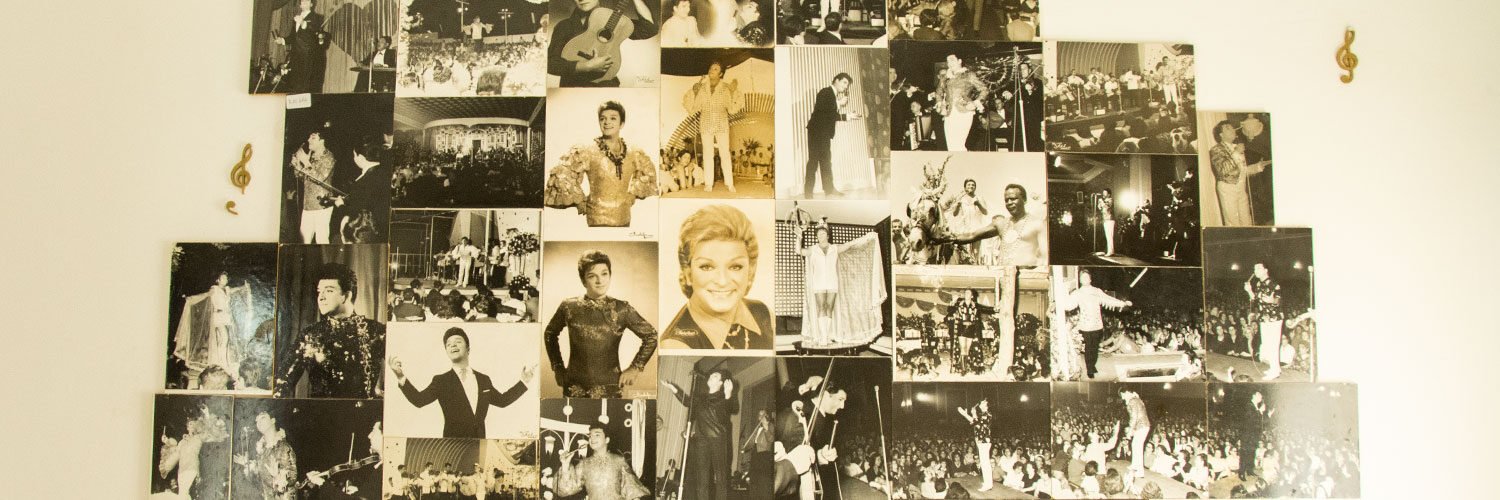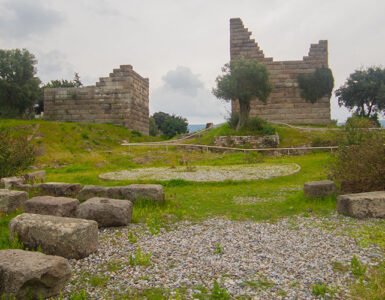Turkish people are quite interesting by nature. They are usually conservative, and they may be quite harsh on the lifestyles which they don’t approve of. However, they can be contradictorily flexible, understanding, and protective of someone who they really love. Zeki Muren Museum in Bodrum may be the best example of their perspective.
On this page
Table of Contents
Story of the Zeki Muren Museum
The most famous name in the Turkish classical music is undoubtedly Zeki Muren, who has passed away in 1996. Indeed, he was a great classical Turkish music singer and composer. He was also a poet, an actor, a fashion designer, and a serious Bodrum addict.
After so many years, even the generations which came after him didn’t forget his name and his music. He was known as the Sanat Gunesi, which means “The Sun of Art” in Turkiye and he still is. However, Bodrumians called him something else: The Pasha. They still do.
After having a heart attack in 1980, he decided to live in Bodrum where he said he found peace. His relocation to Bodrum and his private life in the streets of this small town were always in the headlines of the national newspapers, adding a huge value to the Bodrum brand.

His popularity, which moved tens of millions of people, didn’t come only from his wide range of artistic skills, but also from his private life. He was a pioneer in expressing himself as who he was. He proved that homosexuality was not something to be afraid of and gained the respect and the hearts of a traditional and conservative society.
After his death, his house in Bodrum was restored and opened as Zeki Muren Museum in 2000. This is a privately owned museum. Like the Bodrum Maritime Museum, it is supported by the Ministry of Culture and Tourism.
Since the opening, Turkish people have been showing their respect for The Sun of Art by visiting his old house, which is in the Kumbahce neighbourhood, on a street named after him: Zeki Muren Street.
Recommendations for Visitors
The museum is on a central location, at the end of Cumhuriyet Street which is also known as The Bars Street. Scheduling 30 to 45 minutes for your visit would be just fine. The entrance fee is symbolic and TL 10, which is about USD 1.5 or EUR 1.2.
I think, it is a good opportunity for you to visit and see a real Bodrum house from the inside. Meanwhile you will also have a clear idea on the classic decoration style of a Turkish houses like the one I grew up in.

You are free to take pictures so don’t forget to bring your camera with you. Here, in Zeki Muren Museum, you will find interesting stage costumes which were designed by Zeki Muren. The Aegean panorama is also worth to add to your Bodrum photos album.
I have never been a Turkish classical music fan. However, I utterly respect Muren’s great artistic talent, his Turkish language skills, and his bravery for expressing himself against all odds. Still, each time I visit the Zeki Muren Museum, the grief on the visitor’s faces surprises me. I witnessed the tears on the cheeks of a young girl who was surely born much after Zeki Muren’s death.
Zeki Muren Museum showed me the love, respect, and acceptance he earned over the years with his talent, hard work and commitment. At the end, I am glad to visit this small museum and I hope you will like it too.

Sections of the Zeki Muren Museum
What is inside the Zeki Muren Museum, is not only the simple life of a great artist but also how a traditional Bodrum house design looks like.
The museum is where Zeki Muren had lived in his Bodrum years. His personal items, self-designed costumes, sketches and even some of his fan letters are on display in this typical Bodrum house. As you will learn about one of the most controversial people in recent Turkish history, you will also find an opportunity to check the local architecture, and the classical decoration of Turkish interiors.
Ground Floor
The museum entrance is on the ground floor with the living room and the bedroom. Both rooms have been kept as Zeki Muren left it for the last time.

The rooms have been decorated in the traditional style. My childhood memories in my grandmother’s house filled my mind for a moment when I saw the sofas, the rugs, and lots of trinkets in the living room. A king size bed with a wooden headboard, a commode, and wardrobes with wood carvings in the bedroom are like straight from black and white Turkish movies.
Stage costumes which were designed and worn by Zeki Muren, the audio equipment which was used on stage and old photographs are on the walls and corridors, like in other parts of the museum.
Second Floor
The most of his stunning, interesting, and colourful costumes are on the second floor. All costumes, including shoes and ornaments, are Zeki Muren’s own designs. As you may notice in the short bio of Zeki Muren, he had studied fine decorative arts. He did not only just create all those interesting designs, but also wore them in his performances. Believe me, wearing all those out-of-the-ordinary costumes 40 – 50 years ago, was a bold move requiring real courage.

The pattern drawings and paintings hanging on the walls show his passion for all types of art. He had opened several exhibitions in almost all the cities in Turkiye to share his work with his fan base.
During his career, he was nominated hundreds of awards, which you can find some of them in the Zeki Muren Museum, on the second floor, along with some fan letters, stage accessories and photos.
The Garden
A small garden with a great panorama of the Kara (Black) Island and the Aegean Sea is the last stop before leaving the museum.
A bronze sculpture of the Sun of Art made by the artist Tankut Oktem looks as if he sings for his beloved Bodrum.

The last section of the Zeki Muren Museum is where Zeki Muren’s favourite car, a classical Buick Regal, is displayed behind the windows in the garden. I can’t stop picturing him, driving his car to his favourite beach, Bardakci Bay, in his colourful and shiny costumes.
On the front elevation of the building, facing the garden, Zeki Muren’s signature phrase, Sevgilerimle, which means with my love, greets the visitors.
To be honest, I don’t think that the items inside the Zeki Muren Museum are enough to reflect the life of a great artist. Still, I believe that it is worth visiting the museum to catch a glimpse of the Turkish culture in many ways.







Add comment